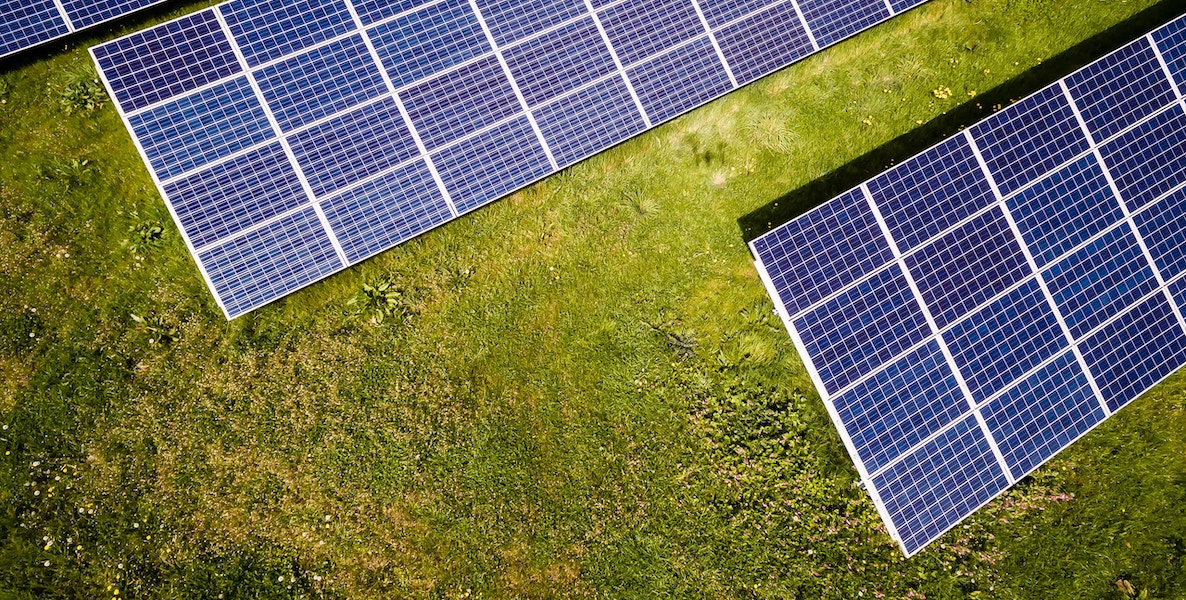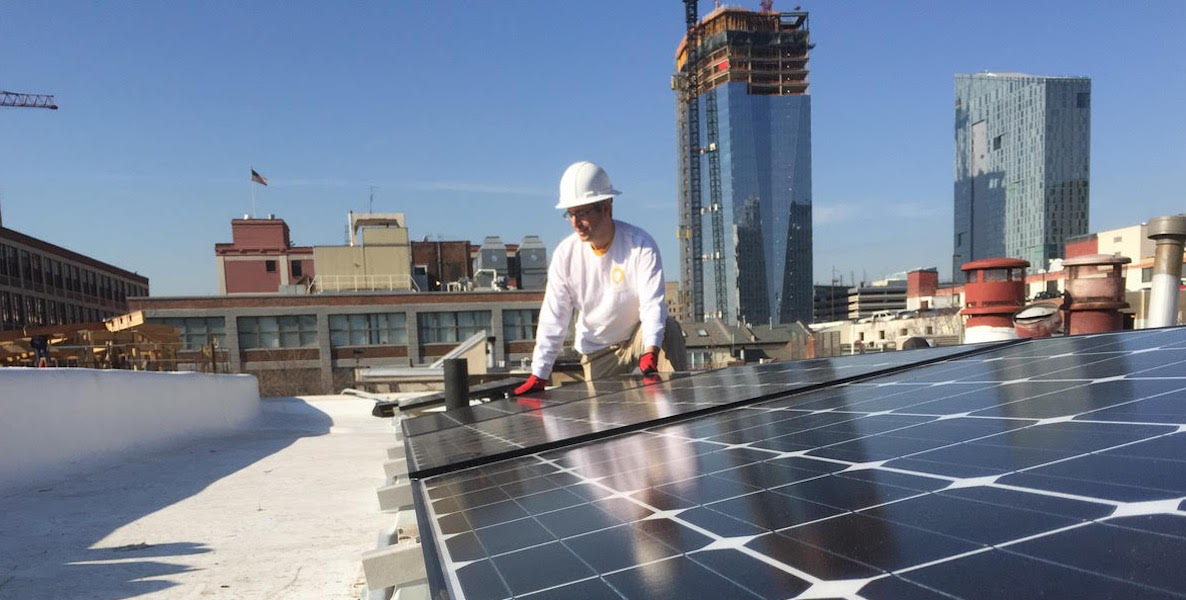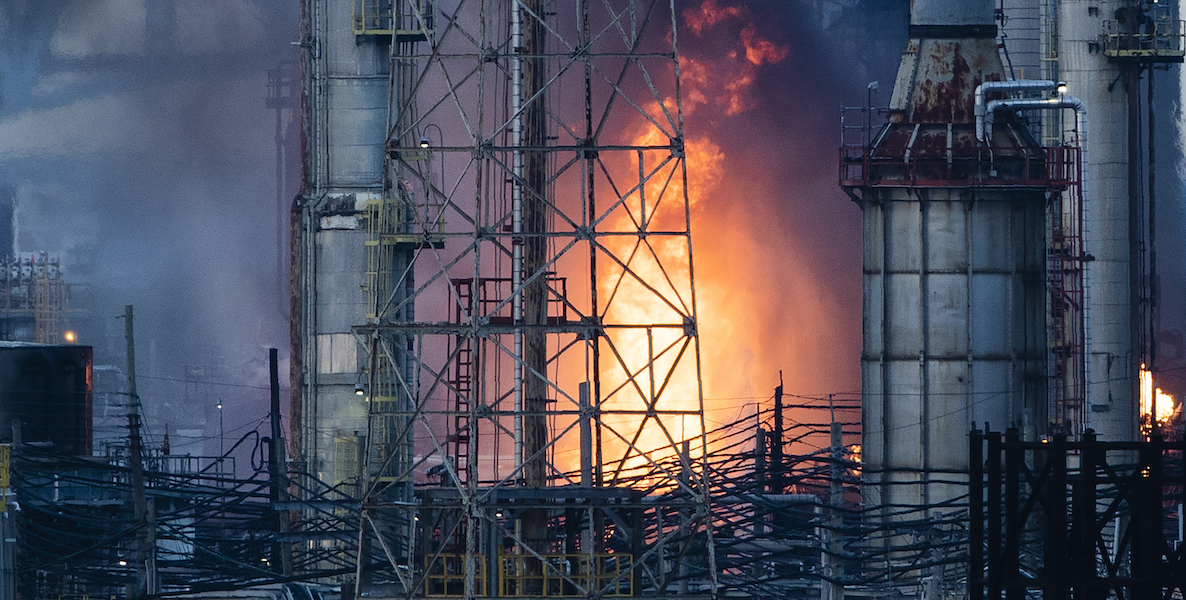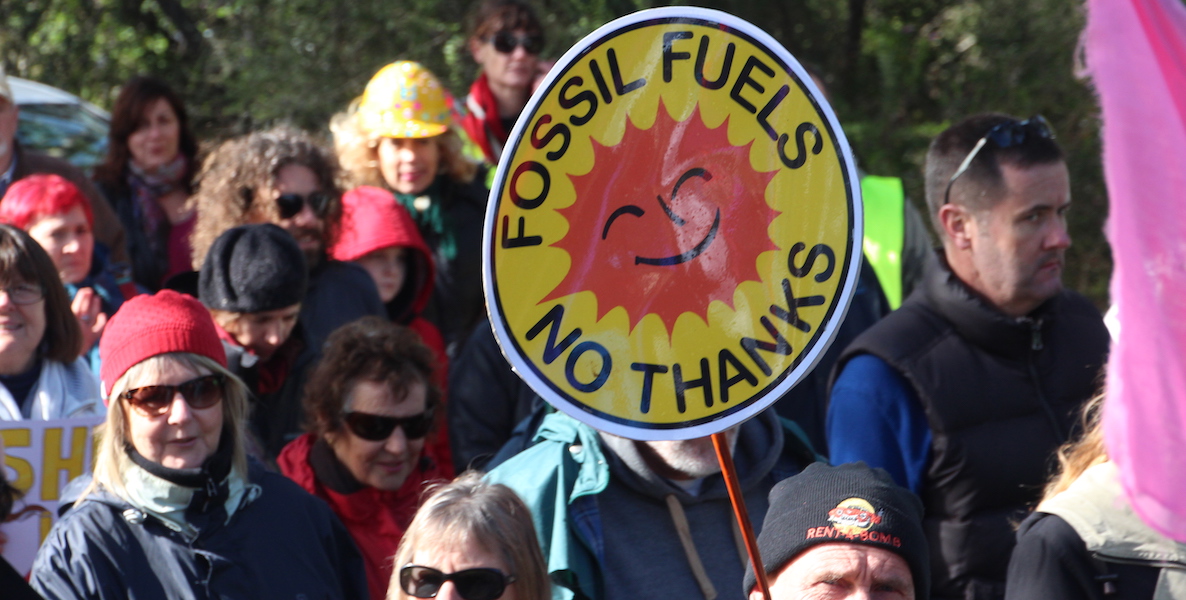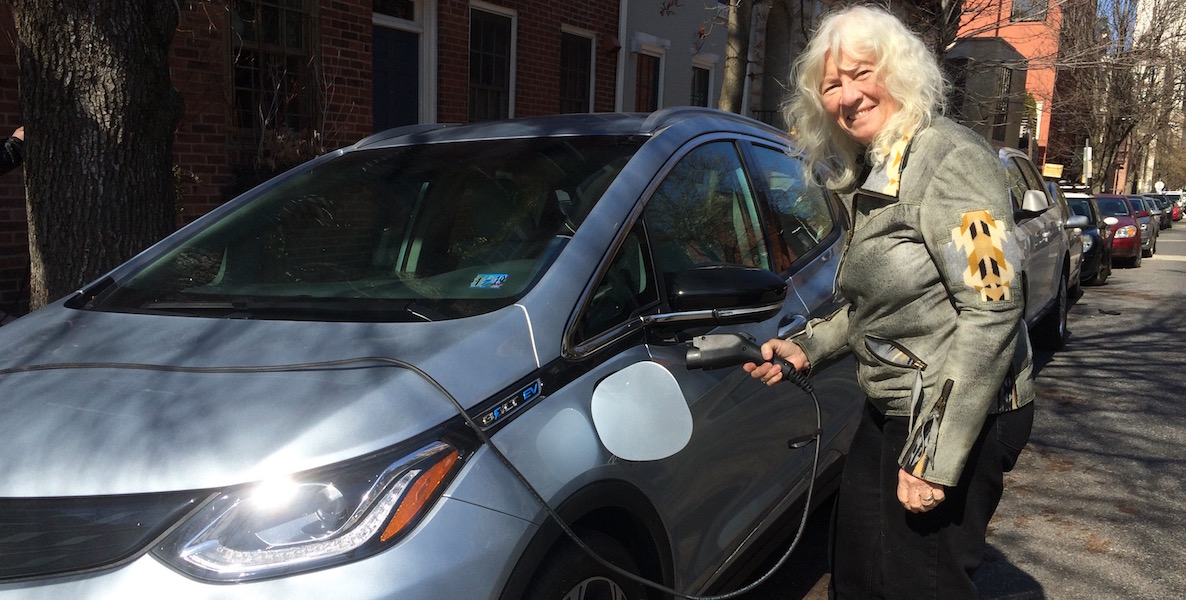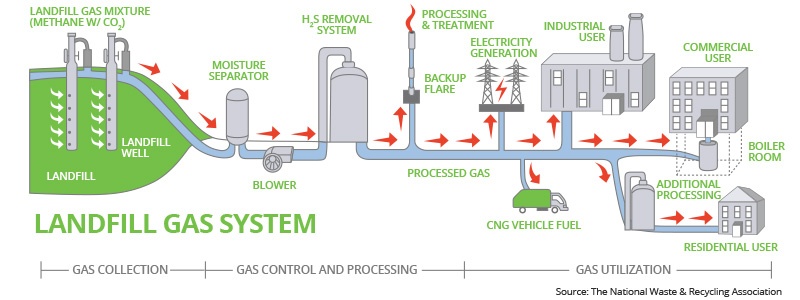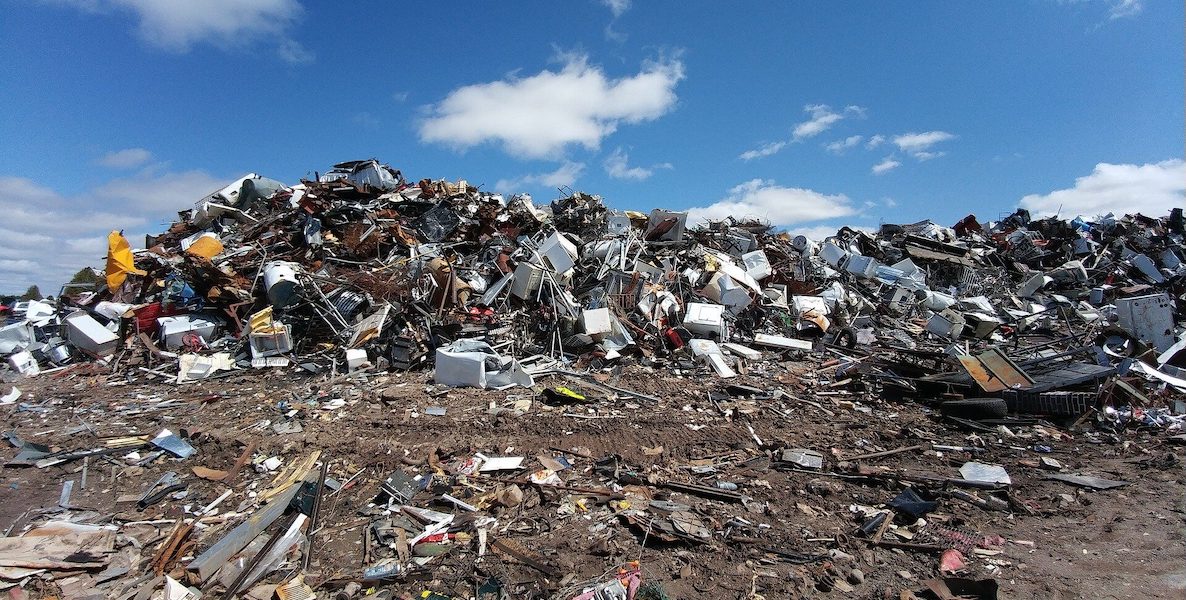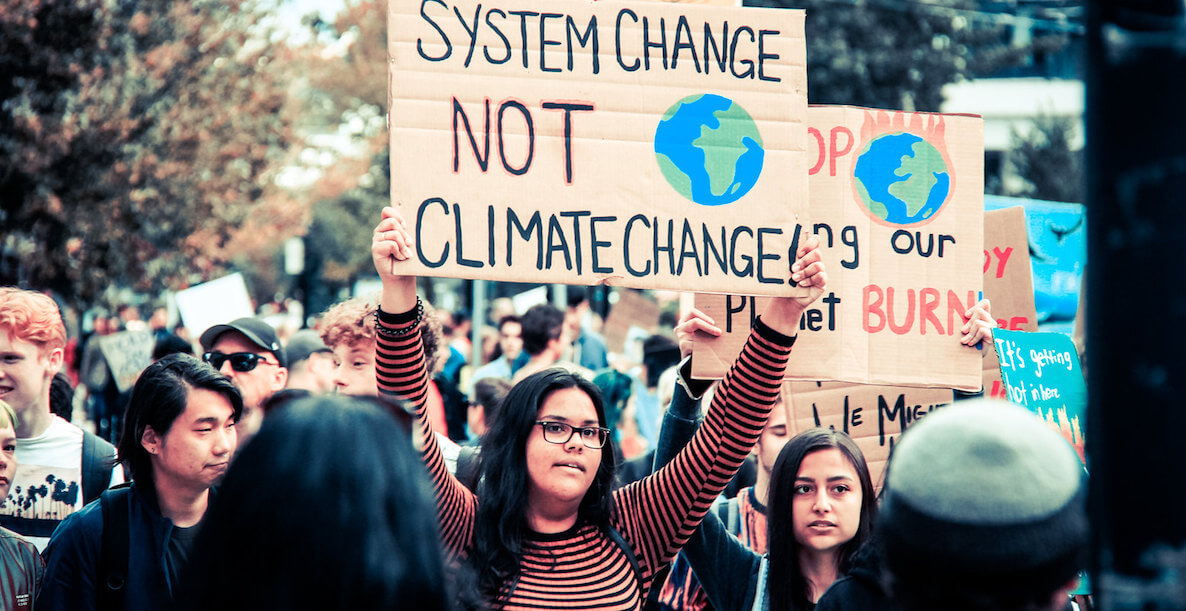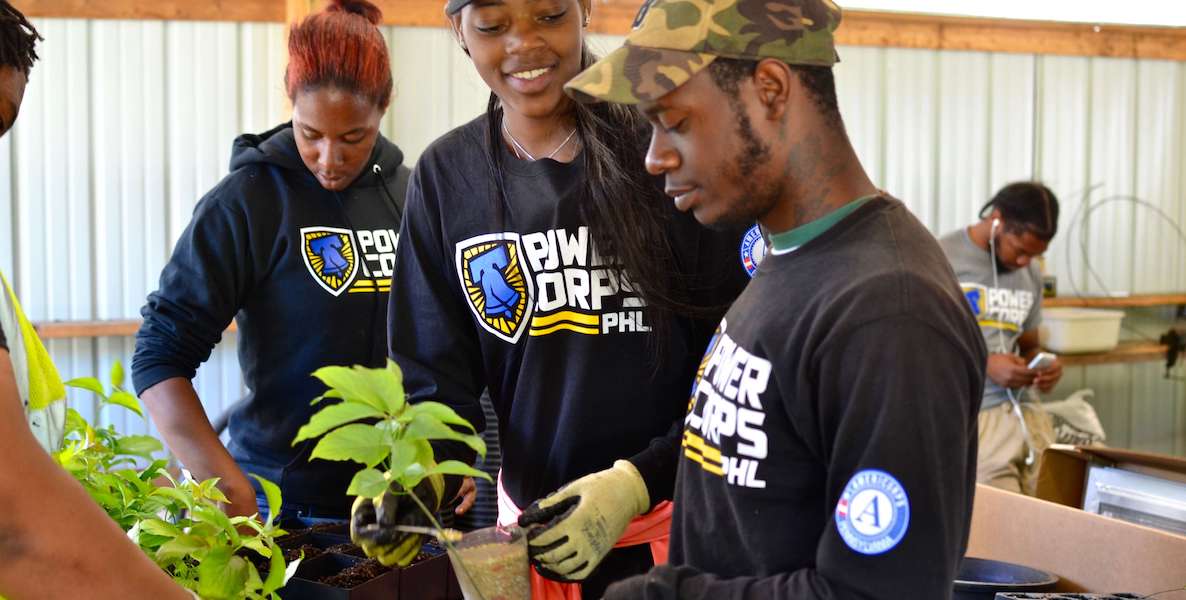Drive past one of Philly’s landfills, and you’ll likely note the typical contents of a dump — rotting food, old couch cushions, stray plastics, aluminum cans — along with the stench of decomposing trash seeping into the atmosphere. You’ll see, in other words, garbage.
Members of Philly’s Energy Co-op, however, don’t just see garbage. They see the beginnings of an eco-conscious way to heat their homes — and now, they have a way for all Philadelphians to use it.
The Mount Airy-based co-op takes decomposing waste from organic materials found at landfills, wastewater treatment plants and other waste facilities and turns it into fuel people and businesses can use to heat buildings, and for other energy needs.
Renewable natural gas (RNG), otherwise known as biomethane or biogas, uses the city’s existing gas grid and can be used to power appliances, such as gas stoves, without any updates.
The Energy Co-op is currently the only provider of renewable natural gas in the city; other green gas programs in the city use traditional gas and purchase carbon offsets on the user’s behalf.
The Energy Co-op buys natural gas from waste plants that capture methane from food waste, plant materials, sewage, agricultural waste and other organic materials, and then sells it to consumers. The arrangement encourages landfills to reuse the waste, so it doesn’t contribute to pollution.
RNG allows people to make use of carbon that is already circulating in the environment, while reducing dependence on fossil fuels and processes like fracking, which release carbon that was previously sequestered beneath the Earth into the atmosphere. When captured for conversion into renewable natural gas, methane from organic materials releases greenhouse gases that are 21 times less potent than if the materials were left to decompose.
Make the switch to renewable energyDo Something
“As the natural gas business in western Pennsylvania became more prominent, a lot of Pennsylvanians became concerned about the amount of environmental damage that results from drilling for fossil fuels and about hydraulic fracking,” Ronald Fisher, executive director of The Energy Co-op says. “So that’s when we introduced renewable natural gas as an alternative to traditional natural gas.”
The Energy Co-op has been offering renewable natural gas to PECO customers living outside of the city since 2010. Starting in January, they’ve expanded their offerings to include Philadelphia Gas Work’s (PGW) pipelines, and now they are able to offer renewable natural gas, as well as renewable electricity services, to every Philadelphian for the first time.
“Like any non-profit, mission driven organization, we are in the business of putting ourselves out of business,” says Fisher. “We are working towards a world where PECO is selling 100 percent renewable electricity as soon as possible and so we have to evolve.”
Philadelphia has set the goal of reducing citywide carbon emissions by 80 percent by 2050. In order to get there, the report “Powering Our Future: A Clean Energy Vision for Philadelphia” argues, more people in the city will need to switch to products like renewable natural gas. The Energy Co-op is finally providing citizens with that option.
RNG from The Energy Co-op costs about 50 cents more per day than regular heating fuel. For users, this amounts to about $15 more per month on their energy bill. “We will spend more money on RNG than we did on fracked natural gas, but it’s worth it to fulfill our environmental bottom line,” says Jon Roesser, general manager of Weavers Way Cooperative Association, one of The Energy Co-op’s early partners.
Founded by members of the food co-op Weaver’s Way, The Energy Co-op originally launched in 1979 to provide its members with affordably priced home-heating oil during the oil embargo. Since then, they’ve grown to service thousands of members, and have shifted their emphasis from affordable pricing to offering more sustainable, clean energy products.
About renewable natural gasLearn More
Since the organization is a cooperatively owned nonprofit, the members who pay for its services determine both the company’s bylaws and its board of directors. As a result, Fisher says, the organization is driven by the needs and energy concerns of its consumers — not, as in a for-profit, its bottom line. It can also work faster to meet those demands.
“Unlike a corporation, we’re very democratic. No one member can buy all of the membership interests,” says Fisher, who has spent 40 years working in the energy sector and the last 15 involved in the renewable energy space. “Our members really tell us what they want. As more and more people became educated about clean air issues, about climate change issues, our members and the community at-large started to demand more and more green electricity.”
It’s those demands that drove the co-op to start offering renewable natural gas products in 2015 using PECO service lines. The federal government created the renewable fuel standard in 2005; since then, more forms of renewable gas—including the renewable from landfills — have been developed.
“We will spend more money on RNG than we did on fracked natural gas, but it’s worth it to fulfill our environmental bottom line,” says Jon Roesser, general manager of Weavers Way Cooperative Association, one of The Energy Co-op’s early partners.
While Pennsylvania has not adopted requirements that mandate a certain percentage of natural gas come from renewable sources, other states including California have, and it’s quickened the development of renewably sourced fuels.
As part of its mission, The Energy Co-op is committed to helping the city achieve its clean-energy goals. They work with other nonprofits, such as Women in Sustainable and Renewable Energy, the Clean Air Council and the Energy Efficiency Network to support the creation of green jobs within the community and to provide education to consumers about where their energy comes from.
Two to three times a year, the group holds events to make the community aware of green energy options. They also host tables at sustainability fairs and attend Mount Airy’s Supper Sessions to help bring energy education to the community.
On the jobs front, the co-op takes interns from the Energy Coordinating Agency, a group that provides job training as HVAC installers, solar panel installers and energy efficiency auditors to students, returning citizens and other groups, in order to help get people involved in the green jobs sector who typically wouldn’t be considered for those positions.
“We think it’s really important that people don’t just use energy but that they understand it,” Divya J. Desai, operations director at The Energy Co-op, says. “The industry isn’t necessarily transparent. That’s a gap that we really fill. We exist in a lot of ways to provide our members and the community with a way to purchase energy and understand it and have that transparency.”
Members can volunteer through the co-op’s member volunteer committee. They work to increase the co-op’s membership by speaking with community members and finding other organizations that the co-op can partner with.
The group has also renewed their partnership with Weaver’s Way, their original founding co-op, which has switched all of their buildings to renewable natural gas, and are offering the Weaver’s Way members an incentive to switch their homes to renewable energy services.
About Philly's energy issuesRead More
While this year will be the first year that The Energy Co-op is able to offer natural gas to all Philadelphians, the company is already looking forward to the future. In addition to continuing to expand their renewable natural gas program, they’re working on a product that sources biomethane from animal and agricultural waste, a major source of methane in the environment.
Fisher says he can imagine a future where the group also becomes a supplier of solar energy, and anticipates that the group’s efforts will begin to push PECO, PGW and other for-profit energy providers to sell 100 percent renewable products.
“One thing that you have to understand about the energy business, is that it changes every day,” Fisher says. “Like any non-profit, mission driven organization, we are in the business of putting ourselves out of business. We are working towards a world where PECO is selling 100 percent renewable electricity as soon as possible and so we have to evolve.”
Image by vkingxl / Pixabay


